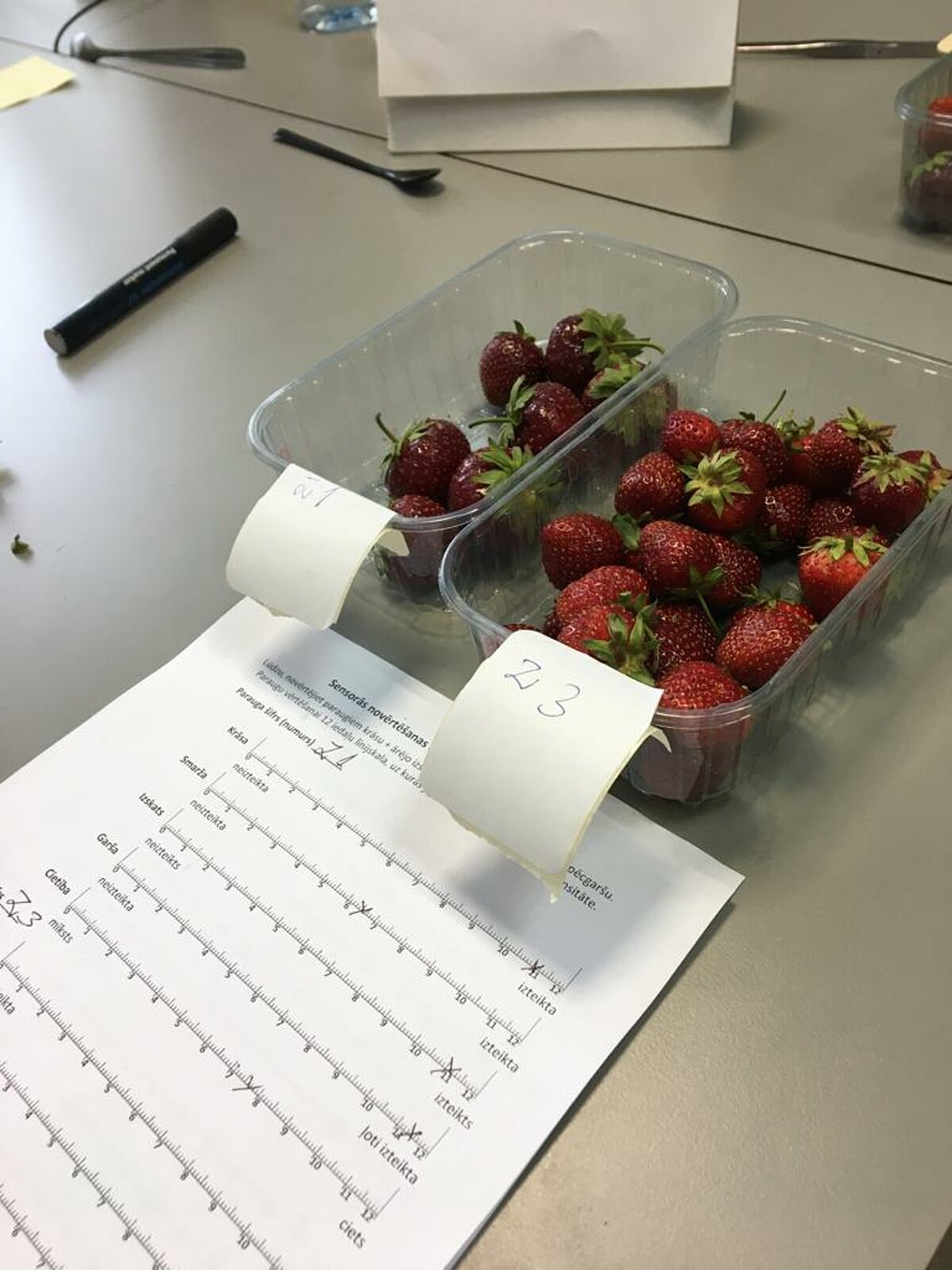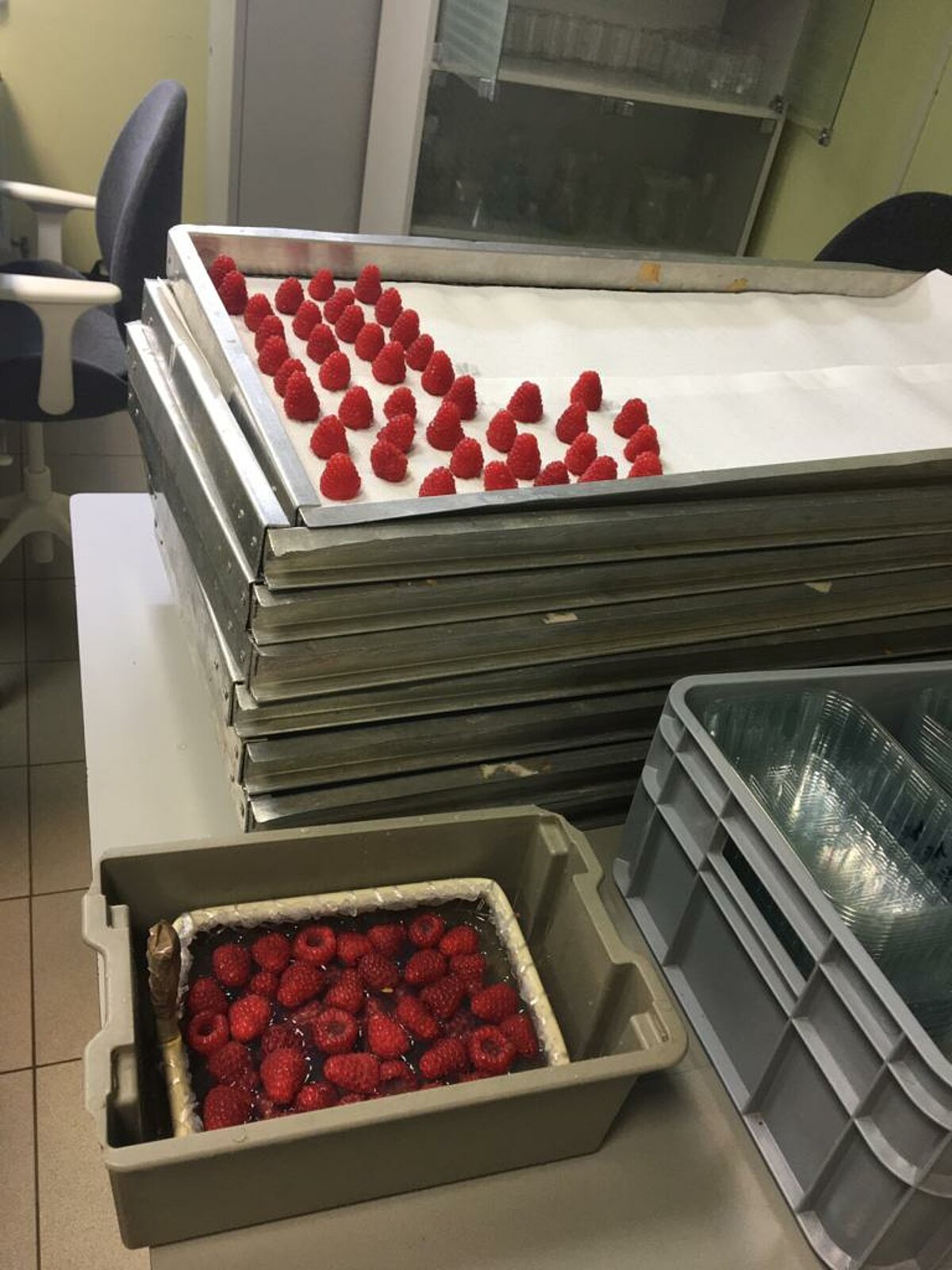The typical berries grown in Latvia – strawberries and raspberries – are popular among many consumers during the season. Not only do the berries have a pleasant taste, but they contain many valuable nutrients and biologically active compounds, including vitamins and antioxidants. Unfortunately, the shelf life of these berries does not exceed 5-7 days. They are a highly seasonal product that limits the availability of local berries on the market. The shelf life of berries depends on the storage temperature, relative humidity, respiration rate, thickness of the epidermal layer and the resistance to microorganisms. Mechanical damages occurred during berry picking or transportation can also reduce storage time significantly.
According to the Food and Agriculture Organization (FAO), the total loss of fruit, berries and vegetables during storage in the European Union is 45% of the total harvest. This is almost half of the production that cannot be sold. In turn, food losses (waste) lead to the release of greenhouse gases, having impact on climate change.
What solution can be proposed to address the problem? One of the options is, to use new more effective technological solutions in berry processing, to maintain the quality of fresh berries for a longer time and significantly extend their shelf life. Such solutions should be both environmentally friendly and economically viable.
Scientific studies confirm the potential of microbial polysaccharides (biopolymers) in food industry and in maintaining the quality of agricultural products.
At the end of 2019, scientists from the Institute of Biology of the University of Latvia and the Institute of Horticulture, in cooperation with agricultural and food producers*, launched the project “Obtaining of bio-degradable polymers from renewable resources for the production of protective coatings and packaging materials for fruits”.
In course of the project, it is planned to develop new biomaterials for the treatment and packaging of berries (raspberries and strawberries), which would allow to maintain their quality for a longer time and extend the storage time. Biopolymer coatings and packaging materials under development are expected to be environmentally friendly and can be obtained by the process of microbial fermentation. Food processing by-products such as whey, fruit pulp or residual syrups can be used to obtain berry coatings.
In the first year of project`s implementation, preliminary test data on berry treatment with biopolymer coatings were already obtained, and a trend for coating efficiency has been shown, thus confirming the potential of the proposed solution to be studied in-depth further.
The implementation of the project will continue until the end of 2022.
*Seven cooperating partners are involved in the project implementation:
- Institute of Biology, University of Latvia (leading partner),
- APP Institute of Horticulture,
- JSC “Rankas piens”,
- SIA “Probiotika LV”,
- SIA “Skoru Dārzi”,
- Valters Dambe,
- Auru parish farm "Pērles".
The research undergo implementation within the framework of Latvian Rural Development Program 2014-2020, Measure 16 “Cooperation” sub-measure 16.1 “Support for the implementation of the European Innovation Partnership Working Group on Agricultural Productivity and Sustainability project”.
The project “Obtaining of bio-degradable polymers from renewable resources for the production of protective coatings and packaging materials for fruits” (No. 19-00-A01612-000004) is co-financed by the European Agricultural Fund for Rural Development (EAFRD).
More information on the EAFRD is available on the European Commission's website.
The implementation of the project is supported by the Ministry of Agriculture and the Rural Support Service of Latvia.
Prepared by the project working group

 CONFERENCE
CONFERENCE
